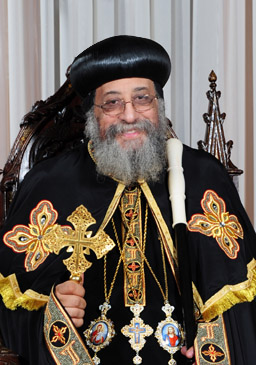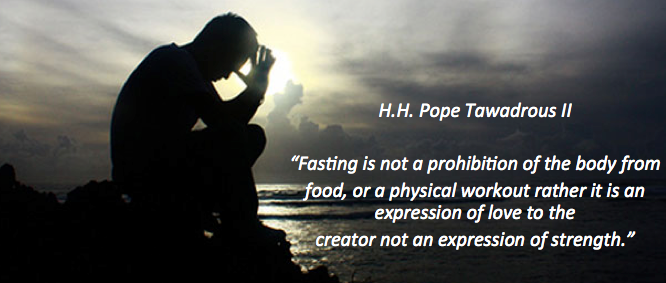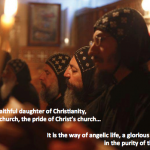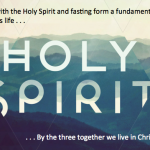We consider fasting a period of love. It is a period to test our love for God, and the love of God for us. We fast plenty in our church. Our church is an ascetic church and that’s how we have come to know Christianity. Fasting in actual fact is a very old commandment. When …
We consider fasting a period of love. It is a period to test our love for God, and the love of God for us. We fast plenty in our church. Our church is an ascetic church and that’s how we have come to know Christianity. Fasting in actual fact is a very old commandment. When God created Adam and Eve in paradise, God gave them a period of fasting. God wanted to teach man various lessons at the beginning. Thus man was experiencing the first test (fasting, self control, obedience, keeping the commandments, proving his love to God). Unfortunately man failed this simple test; he broke the commandment and broke the heart of God.
There is a verse in the Bible we come across twice, once in the Old and once in the New Testament. Our Lord Christ recalled it once again in the temptation on the mountain: He answered saying: “man shall not live by bread alone, but by every word that proceeds from the mouth of God” (Deuteronomy 8:3, Matthew 4:4). This commandment has become the bases for fasting and this period of fasting is where our love to God increases. Fasting is not a prohibition of the body from food, or a physical workout rather it is an expression of love to the creator not an expression of strength.
Our Lord Christ at the beginning of the sermon on the mountain talked about the Christian life (Matthew 6). He spoke about the two things prior to fasting: the first is helping the poor and the second being prayer. After these then comes the period and life of fasting which is the third step.
Assisting the poor which is the first step resembles our relationships with one another. Our feeling towards each other increases at the time of need and we do not distinguish the needy person according to their religion or race but as a human being. Therefore we feel the pain of others wherever they may be in the world and we pray for every needy soul, even if they were across the world from us, even if we do not know themor their name. Then comes prayer which resembles our relationship with God.
Christian fasting is dependant on a period of abstaining, then eating vegetarian food.The period of abstinence can extend to long hours and can even exceed 3pm(depending on the guidance of the Confession Father). The rest of the day we’reallowed to have vegetarian food. The abstinence period is a period of training wherethe will of the person is to abstain themselves from food at that specific time. Of coursefasting isn’t only about food, but it is the first component in fasting, it is a trainingperiod for saying “no”, which is practicing our self-control. The period of havingvegetarian food reminds us of Adam and Eve when they were still in paradise beforethey committed sin, they used to eat from the food of the soil. Vegetarian food usually gives power to man, not power to increase his lusts.
Also, during our fasts, we submit our bodies to the work of our spirit. We want the spiritto guide the body not the other way around. For this to happen we need to give thespirit a chance and this chance is during the periods of fasting such that we don’t livejust according to the body but to the spirit. Thus our spiritual lives can be closer to heaven than earth.
In fasting we are freed from our egos, we begin to feel our weakness. This freedom is required in our life, we are battled by ourselves a great deal and we may fall at anytime or at any age. It is true that the devil can battle us humans and we can be battled by the world’s lustful desires, but when the person battles themselves it remains with them forever.
Fasting is the companion of prayer. It is also the companion of charity and service andthe Christian life in general. The love of God motivates us to fast, our request for thestrength from the Holy Spirit motivates us to fast, and our request of being set freefrom our ego motivates us to fast. Even our love for one another motivates us to fast.In addition to this, fasting itself is a practice for repentance and humility. This is evidentfrom the story of the people of Nineveh. It is a practice of repentance and at the sametime it gives peace to the person so that he feels he is closer to. As fasting makes usfeel for one another it also makes a person feel his weakness as well. This feeling ofone’s weakness is used to overcome anger and selfishness. When we fast we gain avirtue of loving everyone unconditionally. By fasting we gain many more virtues. Thosewho truly benefit from fasting find that they can control their anger and whatever theyutter. They somewhat attain to the virtue of silence and the virtue of having pitytowards others. People gain all these virtues through fasting.
St Athanasius the apostolic has a wonderful saying: “When fasting is kept holy, it not only leads to repentance, but it prepares saints. It leads them to the heavenlies not just the earthlies.”
Join Us: Sign Up Today!
Tags:












